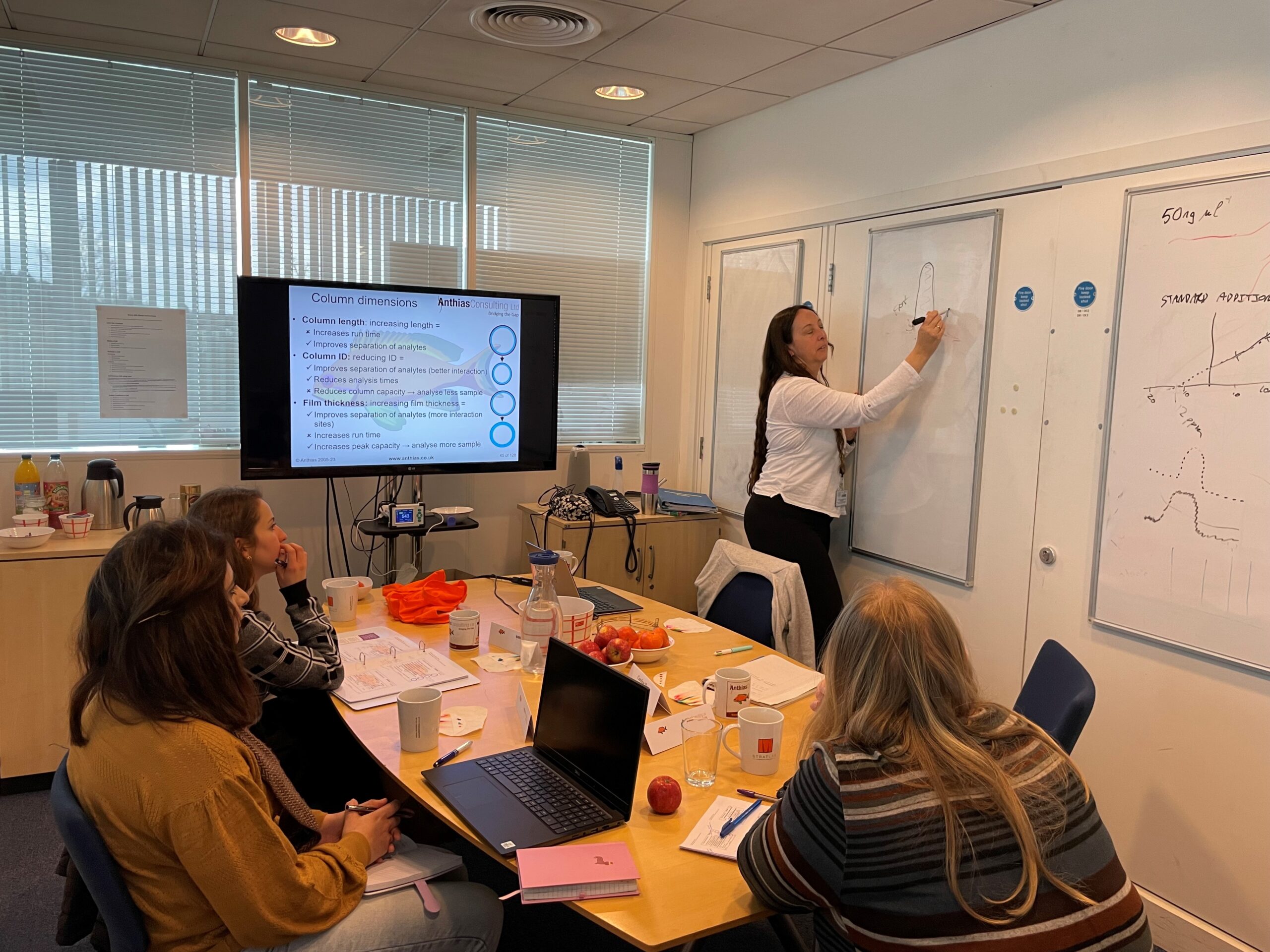The GC and GC-MS Clinic

- Duration: 2 days for face-to-face 13 hours for Virtual Classroom training
- Experience level: Advanced
- Delivery methods: Face-to-face | Offsite training & consultancy | On-Demand | Online | Onsite training & consultancy | Tailored training |
- Type of course: Universal
- Applicable to manufacturer(s): Agilent | Bruker | CDS Analytical | CTC | Frontier | GERSTEL | GLSciences | Leco | OI Analytical | PerkinElmer | Pyrolab | Scion | Shimadzu | SRI | Thermo | Varian | Waters |
- CPD Approved: Approved
- Scheduled course price: £750.00 + TAX per delegate
- Course discounts: RSC CAMS HEaTED members receive a discount on this course

What will you learn on this course?
This course looks at how to choose the GC & GC-MS techniques for an application, set-up the instrument, how to develop & optimise methods and then finally how to maintain & troubleshoot the instrument, techniques and method.
This advanced course also takes a brief look at advanced techniques to help solve those very tricky or complex applications including Selective Discrimination, Deconvolution, Mass Spectral Interpretation, Two-Dimensional GC (GC+GC & GCxGC) and Chemometrics.
Learning outcomes
- You will learn strategies for GC & GC-MS method development.
- You will learn about system optimisation and configuration for GC and GC-MS.
- You will get an introduction to GC & MS advanced techniques
- You will learn to recognise areas requiring maintenance on the instrument.
- You will learn the logical steps of instrument troubleshooting.
- You will troubleshoot problematic chromatograms.
Who is this course for?
If you have reasonable gas chromatography experience or have attended the Practical Essentials of GC & GC-MS or the Complete GC & GC-MS courses then please join us for this advanced training.
If you would like to improve your knowledge in a particular area, you can choose to attend individual days from The GC & GC-MS Clinic course.

